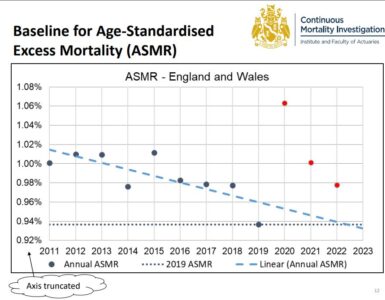On 7 May 2021, Prof Shabir Madhi of the University of Witwatersrand presented the results of a seroprevalence survey in Gauteng. The Twitter thread below discusses the results in detail and includes a video of the session. Prof Madhi’s presentation starts at around 30 minutes. The thread also contains screen captures of some of the slides used.
What did they collect?
The team collected finger prick blood samples as “dried blood spots” from randomly sampled households across Gauteng province. These spots were then tested for antibodies for SARS-CoV-2, the virus that causes COVID-19.
Antibodies develop in the weeks after infection and their presence in blood is an indication of prior infection. The more traditional “PCR” test is useful for testing for current infection, but these do not pick up prior infections.
Gray et al. (2020) and others have shown that antibodies may change over time since infection, and recent infections may not be detectable by tests for antibodies. It’s also likely that over time infections may also not be detected with tests for antibodies.
What was the seroprevalence?
Based on the result of the study they estimated 19% of the sample were positive for antibodies, but they also found that 122 people in the sample had tested positive (via PCR test) before. However, only 60 (or 47%) of those 122 individuals tested positive via the antibody tests.
According to Prof Madhi this indicates that it’s likely that seroprevalence as obtained by the study underestimates the true proportion of the population that had been infected before by about half, possibly due to waning antibody levels.
What does this mean?
Based on the estimated seroprevalence they estimate the infection fatality rate (IFRs) for Gauteng (using 90% of estimated excess deaths) as 0.67%. Adjusting for the possible higher true proportion of the population infected would reduce this by half, to around 0.34%.
The above IFR seems low, but in fact using Levin et al. (2020), the age profile for Gauteng, and an extra allowance for HIV, this author estimated IFR for Gauteng to be 0.36%.
What are the implications?
This survey is useful as it presents the first province-wide household survey of seroprevalence of SARS-CoV-2 antibodies in South Africa.
This survey seems to confirm that IFR in Gauteng may be consistent with Levin et al. (2020) with some adjustment. This gives comfort that modelling used for COVID-19 in South Africa makes sense and, given the large number of excess deaths observed in South Africa, the number of historic infections and associated immunity is also large.
However, should the underlying lower seroprevalence be accurate then that would imply that Gauteng (and by extension South Africa) has had far fewer infections to date than previously thought, and also that the burden of further infections would be higher due to the higher IFR that this implies.
To rule out this latter scenario one would wish to understand why the test for antibodies had such a low sensitivity for those who had tested positive via PCR before.















